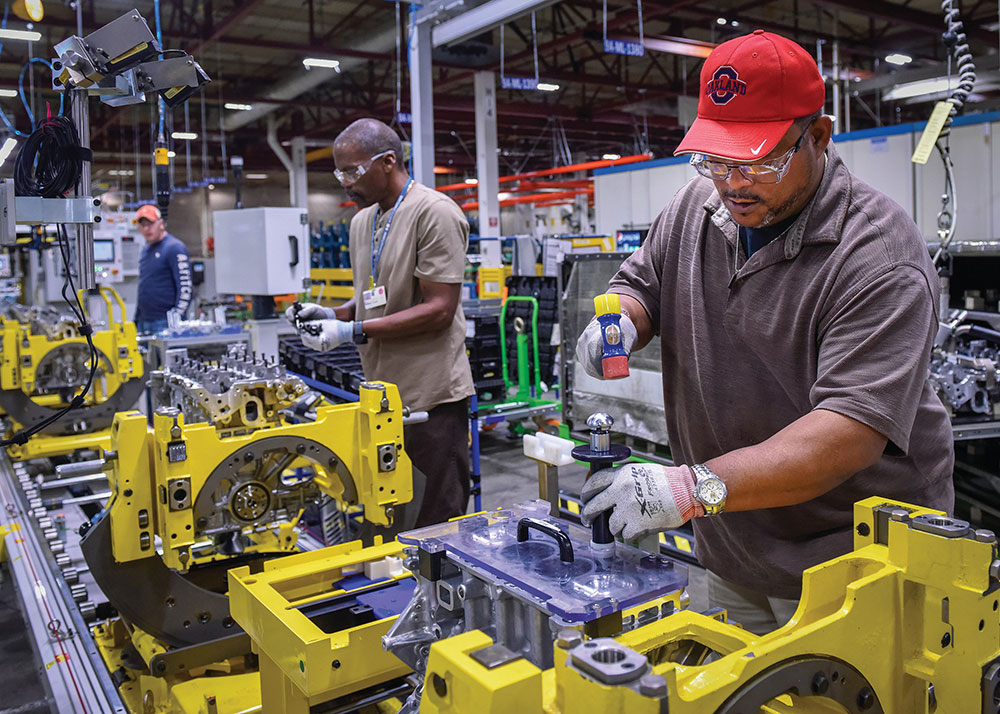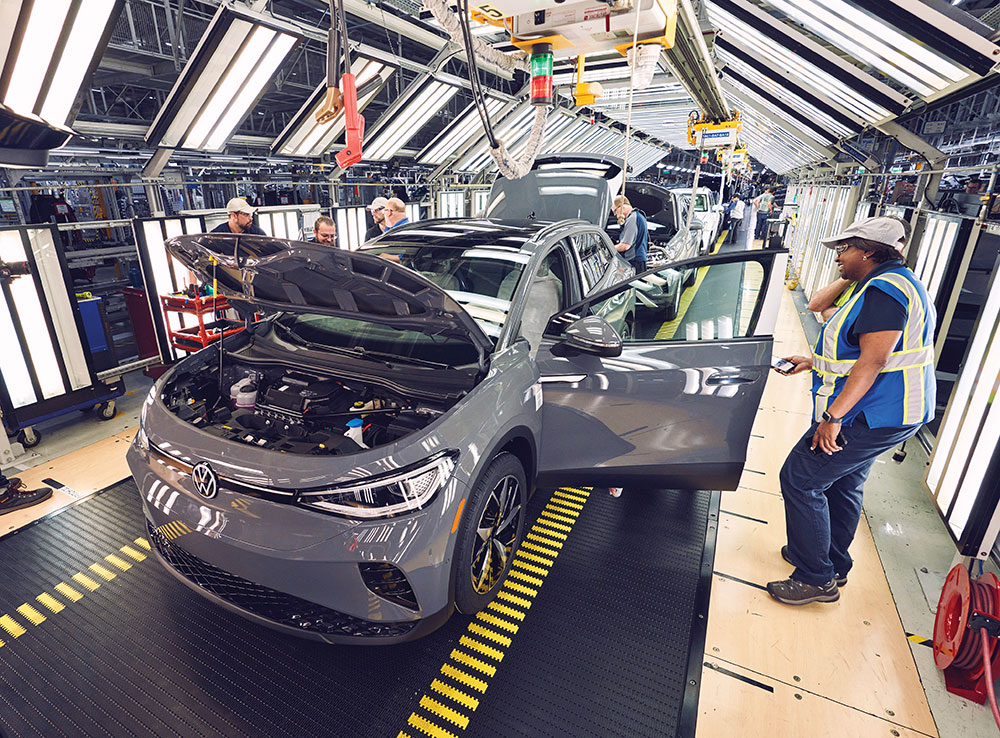Electric Vehicles: Charging Forward in Tennessee
Powered by a highly skilled workforce and great logistics network, the Volunteer State is leading the nation's EV evolution.

Innovation drives Tennessee’s economy. Already a leader in automotive production, the state is now on the lead lap in electric vehicle development. Nissan, General Motors and Volkswagen are all making electric vehicles in Tennessee, and Ford Motor Co. is building its $5.6 billion BlueOval City development in West Tennessee that will produce EVs.
Tennessee is also attracting more auto-related investment as suppliers establish facilities to supply batteries and components for EVs and becoming a leader in the domestic manufacturing of critical materials used to make lithium-ion batteries, such as lithium, cobalt, nickel and graphite.
Powering the Future
Since 2018, the state has received 13,000 new job commitments and $15.8 billion in capital investment related to the EV industry.
Boosting Electric Vehicles in Tennessee
The boon in Tennessee’s EV sector reflects a shift in the auto industry across the country and even the world.
“All the major car companies have now committed to building electric vehicles, and several are committed to doing away with the internal combustion engine,” says Rob Davies, chief operating officer of 6K Energy, a leader in the sustainable production of engineered materials for lithium-ion batteries.
The company is investing over $200 million in its PlusCAM factory in Jackson. The full-scale battery material manufacturing plant will create 230 jobs and is scheduled to open in the third quarter of 2024.
That shift away from combustion engines requires more than just producing new cars. Batteries and charging infrastructure are key to making the transition to electric-powered vehicles.
“Today, 85% of battery materials are produced in China,” Davies says. “No battery materials are produced in the U.S. 6K is part of the initiative to bring battery production capacity back to the U.S.”
This is the first environmentally friendly battery material plant constructed in the U.S. and the world’s first UniMelt plasma cathode plant providing low-cost, ultra-sustainable production of battery material for localized supply chains in the U.S.
6K Energy plans to show its commitment to the community by hiring employees from all walks of life, Davies says. Veterans, disabled, diverse and disadvantaged individuals will comprise 40% of the workforce.

Projects Coming Soon
Ultium Cells LLC is a joint venture of LG Energy Solution and General Motors. Ultium is investing $275 million to expand its Spring Hill battery cell manufacturing operations. That’s in addition to the $2.3 billion investment announced by Ultium Cells in April 2021. The expansion will create 400 additional jobs and increase battery cell production by more than 40%.
The facility will supply battery cells to General Motors’ Spring Hill assembly plant for production of the Cadillac LYRIQ, the first electric vehicle produced at the plant, and other GM Ultium Platform-based electric vehicles.
LG Chem is building a $3.2 billion cathode manufacturing plant in Clarksville, marking Tennessee’s single-largest announced foreign direct investment project. The facility will create nearly 900 jobs and be the largest of its kind in the U.S., producing 120,000 tons of cathode material annually by 2027 – enough to power batteries in 1.2 million electric vehicles with a range of 310 miles per charge.
Tritium DCFC Ltd. also expects to create more than 500 new jobs over the next five years in Lebanon. Tritium designs and manufactures proprietary hardware and software to create advanced and reliable DC fast chargers for electric vehicles.
Dongwha Electrolyte USA Inc. is locating its first U.S. facility in Clarksville, investing more than $70 million and creating 68 new jobs. The company specializes in producing high-performance and high-stability electrolytes used in lithium batteries by battery-related companies around the globe.
“We are enthusiastic about participating in this journey of achieving 50% of electric vehicle shares by 2030 together with our customers in North America,” says SiJoon Lee, group CEO of Dongwha Electrolyte USA Inc. “The 80,000 tons of electrolyte capacity will provide the best electrochemical technologies into the market to achieve this goal.”

Meet the Motor State
If Detroit is the Motor City, maybe Tennessee is the Motor State.
The state is home to 920 automotive establishments that employ 146,000 Tennesseans. More than 800,000 cars, light trucks and SUVs are produced annually in the Volunteer State, including 19,000 electric vehicles. The state is home to three major automotive OEMs – General Motors in Spring Hill, Nissan in Smyrna and Volkswagen in Chattanooga – and Ford will begin manufacturing all-electric F-series pickup trucks near Memphis starting in 2025.
Tennessee is also home to numerous Tier 1 automotive suppliers, including major companies like Bridgestone/Firestone, Cummins, DENSO, Hankook, Johnson Controls, PPG, Siemens and Ultium Cells. Several automotive-related companies are also getting larger with expansions, including Nokian Tyres in Dayton, Tennessee.
Nokian began producing tires in Dayton for commercial use in 2020, and the company announced in 2023 that it will add a warehouse that can store up to 600,000 tires, thereby doubling the plant’s capacity. The $174 million expansion project will be completed in mid- 2024, and its workforce will climb from 400 to 475 employees. Today, Nokian produces about 4 million tires a year for several models of passenger cars, SUVs and trucks.
Get to Know Tennessee
Want to learn more about living and working in Tennessee? Check out the latest edition of Livability Tennessee Economic Development Guide.



